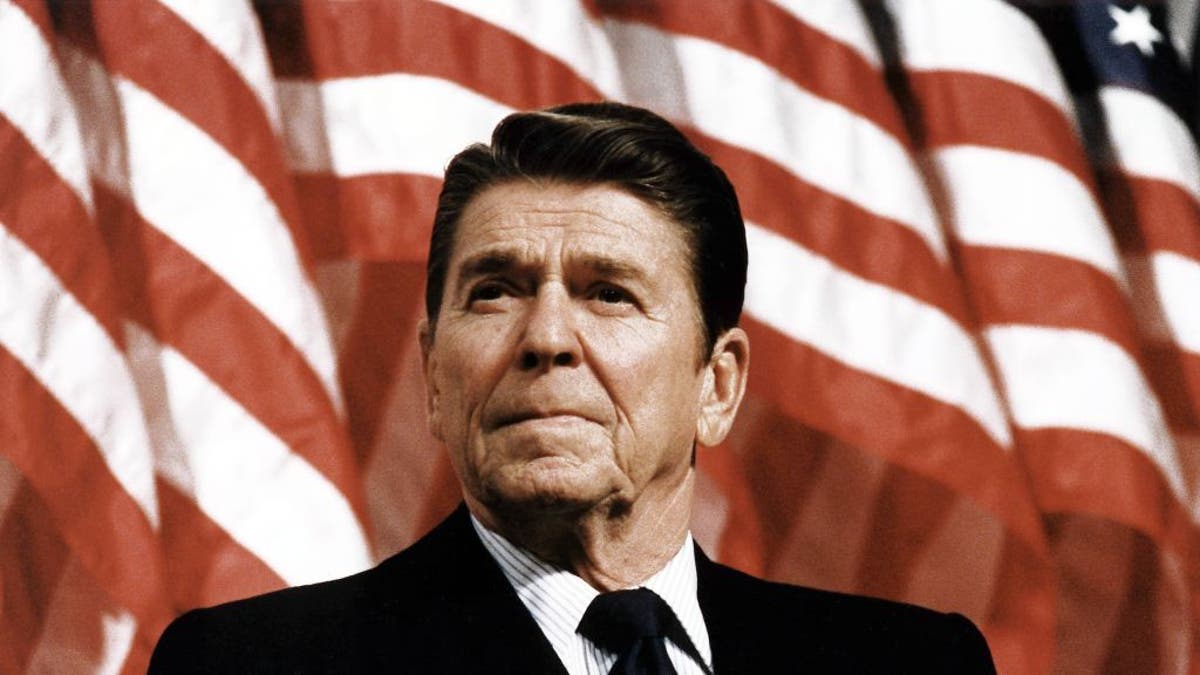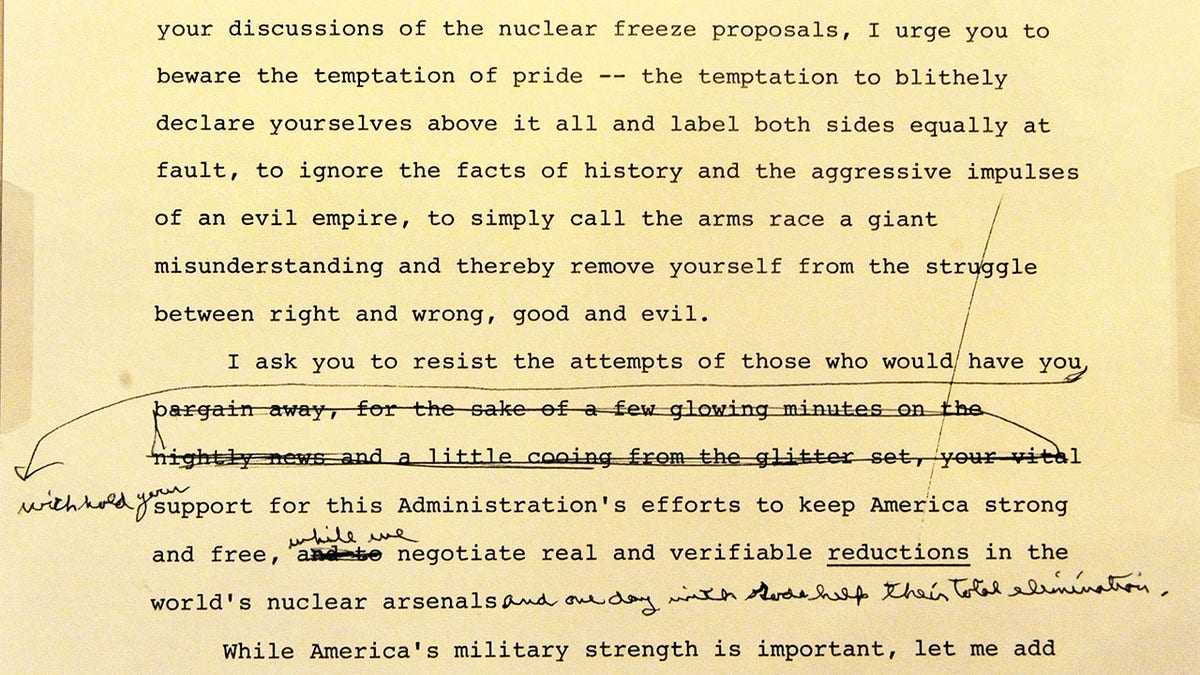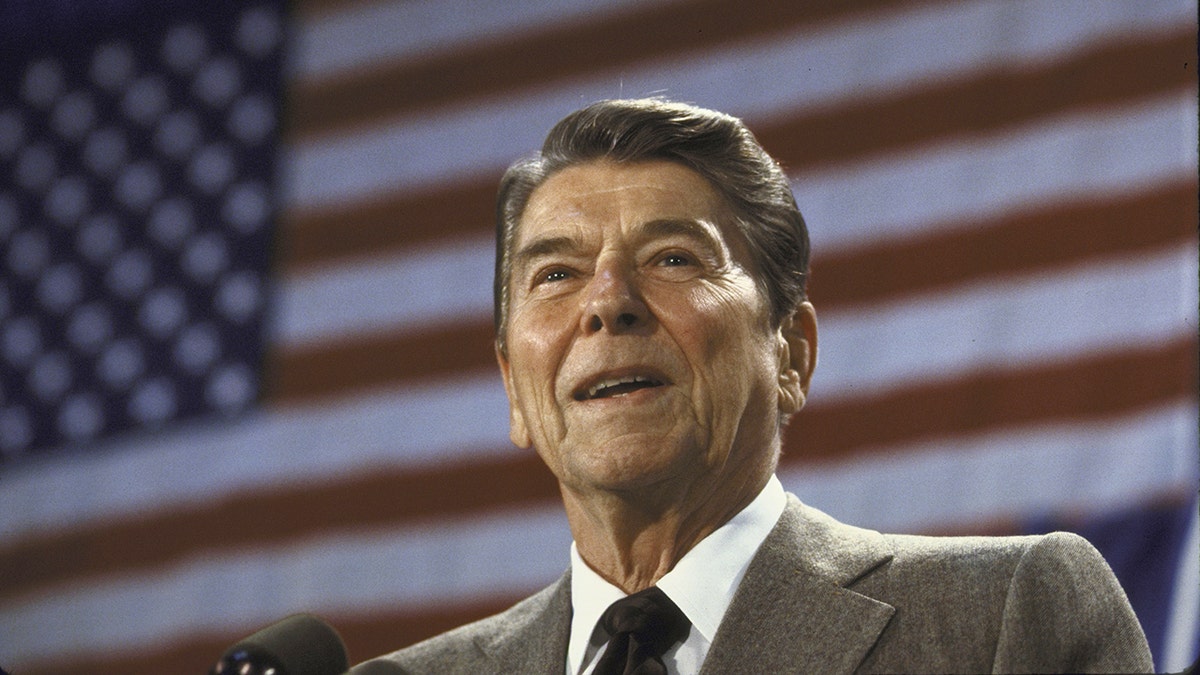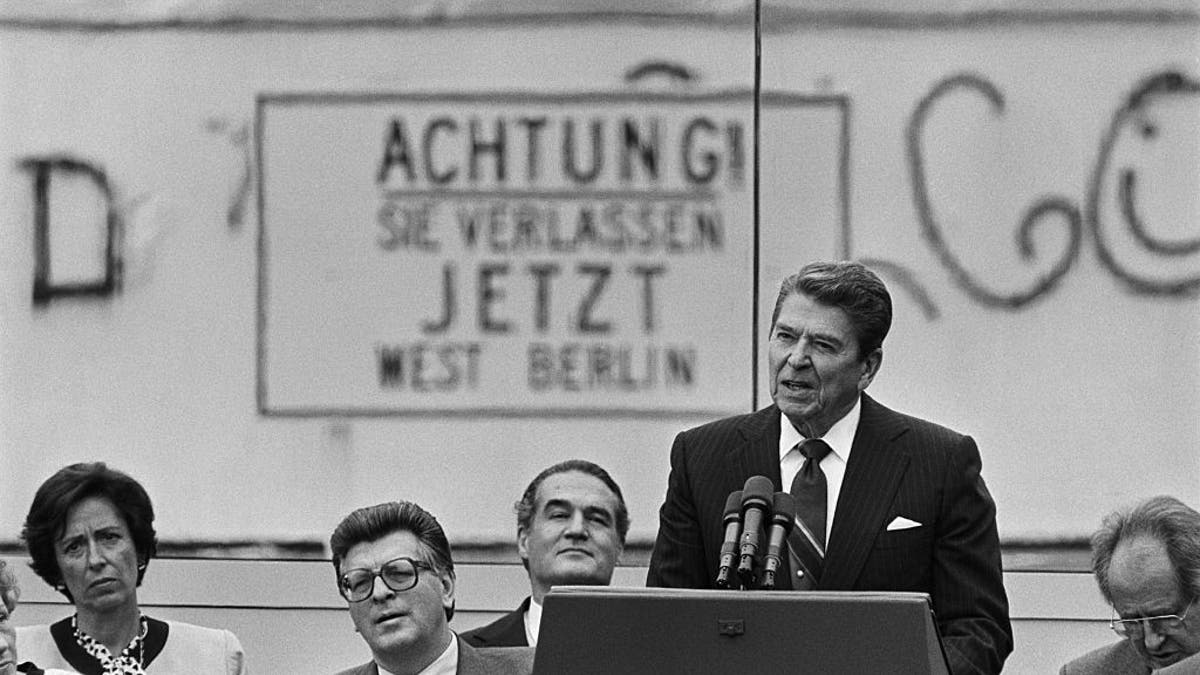Ronald Reagan presidency featured in new Fox Nation documentary
Fox Nation’s ‘American Presidents’ explores the tenures of the nation’s leaders from George Washington to Donald Trump.
President Ronald Reagan's audacious "evil empire" speech is celebrated on Wednesday, March 8, 2023, in Washington, D.C. — 40 years to the day after the president issued a call to spiritual confrontation against communist doctrine and the Soviet Union.
"Reagan brought clarity, moral clarity to the Cold War with the Soviet Union," said Roger Zakheim, Washington director of the Ronald Reagan Presidential Foundation and Institute, told Fox News Digital.
"It’s a lasting legacy speech."
Zakheim’s organization is co-sponsoring a 40th anniversary symposium on March 8 hosted by The Victims of Communism Museum to honor the message of the "evil empire" speech and the man who delivered it.
The group is also memorializing the more than 100 million people killed by communist leaders over the past century, from the purges of Soviet Premier Josef Stalin in the 1930s to Chairman Mao Zedong's Cultural Revolution in China in the 1960s and 1970s.

President Ronald Reagan at Durenberger Republican convention rally, 1982. (Universal History Archive/Getty Images)
Their effort to honor Reagan's leadership comes at a time when voices on both sides of the American political spectrum say that communist China poses an ever-growing threat to national liberty and sovereignty; and as the United States is funding Ukraine's war against Russia and its leader, former communist party agent Vladimir Putin.
"I urge you to beware the temptation of pride," Reagan said on March 8, 1983, in front of the annual convention of the National Association of Evangelicals in Orlando, Florida.
"Reagan brought clarity, moral clarity to the Cold War with the Soviet Union." — Roger Zakheim
"The temptation of blithely declaring yourselves above it all and label both sides equally at fault, to ignore the facts of history and the aggressive impulses of an evil empire."
Reagan's speech was more than a scathing indictment of the Soviet Union, with its dictatorial one-party rule and failed economic system.
It was a challenge to Americans and westerners around the world who preached "moral equivalency" during Cold War and the nuclear arms race – the belief in the wake of the Vietnam War that American constitutional republicanism and capitalism were no better than dictatorial communism.

Michael Duggan of the National Archives offered a preview in 2011 of rarely displayed original documents and artifacts in recognition of the Ronald Reagan Centennial, including this three-page draft of the speech given before the National Association of Evangelicals in 1983 when Reagan first declared the Soviet Union an "evil empire." (Gerald Martineau/for The Washington Post via Getty Images)
Reagan saw it differently: The Cold War was an existential crisis pitting good vs. evil.
The president, in the speech, summoned America's spiritual foundation and cited French historian Alexis de Tocqueville, who famously chronicled the unique qualities of the young United States in his epic 1835 tome, "Democracy of Nations."
WOMEN'S HISTORY MONTH QUIZ! TEST YOUR KNOWLEDGE OF THE COMMEMORATIVE MONTH
"Not until I went into the churches of America and heard her pulpits aflame with righteousness did I understand the greatness and the genius of America," de Tocqueville wrote — and Reagan quoted — in the "evil empire" address.
"America is good. And if America ever ceases to be good, America will cease to be great."

Ronald Reagan's "evil empire" speech, said Dr. Anthony Eames, "was one of the key moments in overturning the myth of moral equivalency" between the communist world and the United States. (Dirck Halstead/Getty Images)
"The speech now is more important than ever, with the rise of China and with the resurgence of Russia using its power to achieve political aims," said Dr. Anthony Eames, director of scholarly initiatives for the Ronald Reagan Presidential Foundation and Institute and a teacher at the Elliot School of International Affairs at George Washington University.
RONALD REAGAN PRESIDENTIAL LIBRARY SIGN VANDALIZED WITH GRAFFIT AHEAD OF DESANTIS BOOK TALK
"How many American kids are on TikTok [owned by the Chinese government] today?" asked Eames, a panelist at the March 8 symposium. "They've become addicted to Chinese manufactured goods, to Chinese products."
Reagan's "evil empire" speech, he added, "was one of the key moments in overturning the myth of moral equivalency" between the communist world and the United States.

Ronald Reagan, making his famous challenge to Mikhail Gorbachev to "tear down" the Berlin Wall on June 12, 1987. (Getty Images)
Reagan's powerful statement that day proved the start of a policy and publicity onslaught against the Soviet Union.
Two weeks later, Reagan proposed the Strategic Defense Initiative, often dubbed "Star Wars," which ratcheted up pressure on Soviet economic and military infrastructure; and he brazenly demanded that the Soviet premier "tear down this wall" while speaking in the shadows of the Berlin Wall in 1987.
ON THIS DAY IN HISTORY, FEB. 6, 1911, PRESIDENT RONALD REAGAN IS BORN IN ILLINOIS
The Berlin Wall was toppled in 1989, soon after Reagan left office.
The Soviet Union collapsed under the weight of economic, domestic and international pressure in 1991.
Reagan proved to be on the right side of history in 1983. But 40 years later, the fight against communism is far from over, according to organizers of the March 8 event.
"The speech now is more important than ever." — Dr. Anthony Eames
A large percentage of the world still lives under the yoke of communist rule and the well-documented evils of its practices, claims The Victim of Communism Memorial Foundation.
CLICK HERE TO SIGN UP FOR OUR LIFESTYLE NEWSLETTER
"The real examples of socialism today are China, Cuba, Laos, North Korea, Vietnam, and now Venezuela," the organization states online.
CLICK HERE TO GET THE FOX NEWS APP
"We must contend with these regimes and the threats they pose to free people — and we must struggle for the freedom of the more than one billion people held captive by these regimes."









































